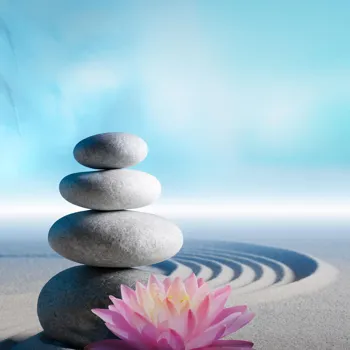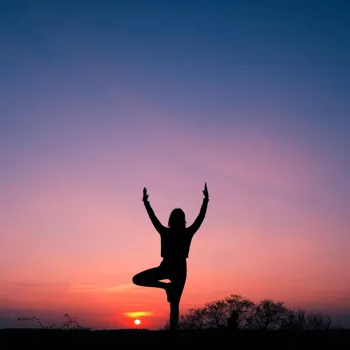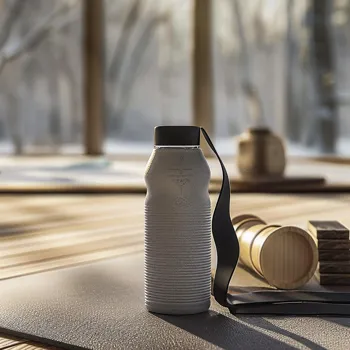Discover the gentle yet profound benefits of Tai Chi in India. A holistic approach to well-being, suitable for all ages
In the bustling cities and quiet villages of India, where ancient traditions meet
modern lifestyles, a growing number of people are discovering the gentle yet profound benefits of Tai Chi.

This ancient Chinese martial art, often described as "meditation in motion," is gaining popularity not just as a form of exercise, but as a holistic approach to well-being.
Forget pumping iron or running marathons; Tai Chi offers a serene alternative, a pathway to improved physical and mental health suitable for people of all ages and fitness levels. It’s about finding balance, both within yourself and in your daily life.
Tai Chi: Slow, flowing movements for health and vitality
Tai Chi, pronounced "tie chee," is characterized by its slow, flowing movements and controlled breathing.
Unlike many high-impact exercises, Tai Chi puts minimal stress on the joints, making it an ideal option for seniors, individuals recovering from injuries, or those simply seeking a low-impact fitness routine.
The focus is on cultivating internal energy, known as "qi" or "chi," to promote health and vitality. Learning Tai Chi involves memorizing a series of postures and transitions, practicing them with mindful awareness and precise form.
Tai Chi's accessibility - no equipment needed, just willingness to learn
The beauty of Tai Chi lies in its accessibility. You don’t need any special equipment or a high level of athletic ability to get started. All you need is comfortable clothing and a willingness to learn.
Many community centers, yoga studios, and parks across India now offer Tai Chi classes taught by certified instructors. These classes typically begin with warm-up exercises, followed by instruction in the basic movements and forms.
As you progress, you'll learn more complex sequences and refine your technique. Finding a qualified instructor is crucial to ensure you're learning the correct form and avoiding potential injuries.
A good instructor will also guide you in understanding the underlying principles of Tai Chi and how to apply them to your daily life.
Tai Chi improves balance, coordination, and muscle strength for all ages
One of the key benefits of Tai Chi is improved balance and coordination. The slow, deliberate movements help to strengthen the muscles responsible for maintaining balance, reducing the risk of falls, particularly among older adults.

Studies have shown that regular Tai Chi practice can significantly improve balance and stability, leading to greater confidence and independence. Furthermore, the focus on coordination enhances body awareness and improves overall motor skills.
Over time, practitioners often notice a greater sense of fluidity and ease in their movements. This is particularly beneficial in everyday activities, from walking and climbing stairs to performing household chores.
Tai Chi enhances mental well-being through mindfulness and relaxation
Beyond the physical benefits, Tai Chi has a profound impact on mental and emotional well-being. The practice requires focus and concentration, which helps to quiet the mind and reduce stress.

As you move through the forms, you enter a state of mindful awareness, becoming more present in the moment and less preoccupied with worries and anxieties. The combination of gentle movements and deep breathing promotes relaxation and reduces the production of stress hormones like cortisol.
This can lead to improved sleep quality, reduced anxiety levels, and a greater sense of inner peace. Many practitioners find that Tai Chi helps them to cope with stress more effectively and to approach challenges with a calmer and more balanced perspective.
Practicing Tai Chi in a group fosters community and connection, combatting isolation
The benefits of Tai Chi extend beyond the individual level. Practicing Tai Chi in a group setting fosters a sense of community and connection. Sharing this experience with others can be incredibly motivating and supportive, creating a space for friendship and mutual encouragement.
The social interaction and shared sense of purpose can combat feelings of isolation and loneliness, particularly among older adults. Moreover, the practice of Tai Chi can inspire a greater sense of connection to nature and to the present moment.
As you move with grace and intention, you become more attuned to your surroundings and more appreciative of the simple joys of life.
Tai Chi: a holistic practice for physical, mental well-being
Tai Chi is more than just a set of movements, it's a philosophy, a way of life. It teaches you to move with greater awareness, to breathe more deeply, and to cultivate a sense of inner peace.
It's a gentle path to fitness that can benefit people of all ages and abilities, empowering them to live healthier, happier, and more balanced lives. Its slow, flowing movements improve balance and coordination, reducing the risk of falls and enhancing overall motor skills.
Furthermore, the mental and emotional benefits are profound, promoting relaxation, reducing stress, and fostering a sense of inner peace.
Tai Chi improves well-being by reducing stress and promoting calm
Tai Chi is gaining traction as a holistic tool for improving well-being by reducing mental stress. The focus required to execute movements provides a mental break from everyday worries.

Regular practice can promote better sleep quality and reduce symptoms of anxiety while promoting a greater sense of calm and clarity. Therefore, this holistic approach of Tai Chi is making its mark.
Tai Chi benefits diverse fitness levels and ages with gentle movements
The gentle nature of Tai Chi makes it accessible to individuals of diverse fitness levels and age groups. These slow, deliberate movements are beneficial for improving posture, flexibility, and muscle strength without putting undue stress on joints.
This is particularly advantageous for older adults or those recovering from injuries who are seeking a low or no-impact exercise option. Consequently, Tai Chi acts as a great medium to improve physical and mental well being.
Tai Chi improves mental focus and physical fitness, promoting calmness
Beyond its accessibility and physical fitness benefits, Tai Chi enhances mental focus and concentration. These slow movements and coordinated breathing engage both mind and body. As practitioners navigate the forms, focus sharpens and enhances mental clarity.

Tai Chi fosters a mindful presence, helping individuals enhance focus and concentration. Consequently, people find themselves experiencing a greater sense of calmness.
Tai Chi enhances body awareness for better movement and self-awareness
Tai Chi is a practice that promotes the development of body awareness. These slow exercises enhance proprioception which fosters body awareness. Practitioners become more intuned to movement patterns which helps in identifying imbalances.
Over time, this body awareness translates into better movement patterns, helps prevent injuries, and enhance physical performance. Therefore, Tai Chi can be a great tool of self-awareness.
taichi promotes mindfulness and relaxation in modern society
In a society often characterized by fast-paced lifestyles, Taichi acts as a welcome antidote. This practice encourages practitioners to slow down, breathe deeply, and be present in the moment. This mindful presence acts as a buffer against the stress of modern day life.
The calming effects of Tai Chi promote relaxation, reduce tension, and restore balance. Therefore, this ancient practice acts as a serene oasis.
Tai Chi improves sleep quality without medication
Moreover, regularly practicing Tai Chi improves sleep quality. This gentle movements soothe the nervous system and promote relaxation. It is effective in preventing insomnia and helps individuals achieve deeper, more restful sleep.

So, Tai Chi can be an excellent solution for many sleep-related disorders that do not include any medicines.
AI Generated Content. Glance/InMobi shall have no liability for the content












